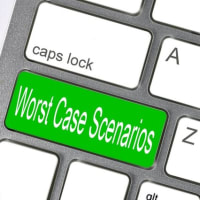
What’s the difference between a certified translation and a notarized translation?

This is no small cause for confusion -even among industry professionals- not only in the terminology but also what exactly are they.
First, the terminology.
Certified translation and a notarized translation is often used interchangeably with "official translation." This is incorrect. Official Translation comes in 4 flavours:
- Certified Translation,
- Sworn Translation,
- Notarized Translation, and
- Apostilled Translation.
Therefore, certified translation and a notarized translation are a subset of official translation, each with important differences. (Use the link below to access the &DISCUSS Translation Blog for a detail description.)
So, what are they
At the heart of the matter is the function of the Notary Public, which many folks
Mistakenly assume has the linguistic skills necessary to authenticate the accuracy of a translated document.
However, we’re jumping the gun here! Let’s start by taking a closer look at what these terms actually mean.
A translation is CERTIFIED
When the Statement of Certification issued by the translation company is affixed with the official company stamp (seal) or is signed by a company representative.
A translation is NOTARIZED
When a Notary Public assures the source documents are authentic, and/or that the company representative’s signature or company’s stamp (seal) is authentic.
So, when a Statement of Certification is notarized, you have a certified AND notarized translation.
And, just to set the record straight, Notary Publics do NOT have the linguistic skills necessary to authenticate the accuracy of a certified translation Japanese-to-English. In fact, if you think about it carefully, it is not their job to authenticate the linguistic accuracy of any documents they notarize! That is,
The Notary Public's job is simply to authenticate seals (stamps) and signatures that appear on the document.
Click Certified Translation Services Japan to find out why a notarized translation may not be the best option for you if you are based in Japan. And, you can also find out at what the same time what the best option for you may be…


























